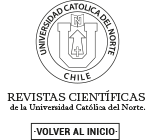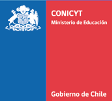El Marriage as a space of “defragmentation” on the displaced mapuche-huilliche in the city of Santiago, Chile, during the second half of the seventeenth Century (1669-1678)
Abstract
Throughout the seventeenth century the frontier war in Southern Chile was characterized by
raids that were oriented towards pillage and the capture of indigenous peoples who had been
declared to be legally enslavable since 1608. Deported to central Chile, Coquimbo or Lima,
Mapuche and southern Huilliche were part of a generalized experience of communal uprooting, the
fragmentation of social networks, territorial links and above all the destruction of familiar ties of
individuals who were exposed to the traumatic experiences of violent abduction and perpetual exile
from their homeland.
The objective of this article is to delineate the signs of this fragmentation and to then study
the recomposition trends –or “defragmentation”– that were observed among the Indians upon
marriage, within the urban context of the Chilean capital and the surrounding area. This analysis
is based on records from the Sagrario parish and centers around an historical moment of transition
between the rise of the capture and traffic of this “rebel” Indians and the abolition of legal slavery.
Published
How to Cite
Issue
Section

All works published in Revista Estudios Atacameños (ISSN on line:0718-1043) Revista Estudios Atacameños Creative Commons International 4.0 attribution (CC BY 4.0) licence.
Authors remain the owners of their work and may republish their articles elsewhere without having to request permission, as long as they indicate that the work was originally published in Revista Estudios Atacameños (ISSN on liine:0718-1043).

















